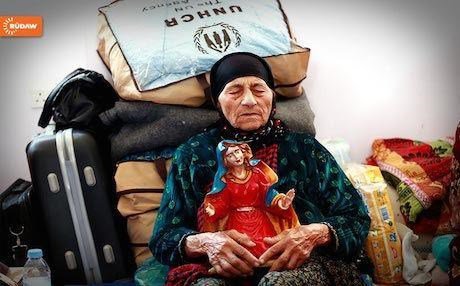World Conference in Erbil on future of Iraqi Yezidis and Christians
 A two-day international conference opened Sunday in Erbil on the future of Christians and Yezidis in war-torn Iraq, as thousands of families from the religious minorities continue to leave the country for Europe to escape systematic persecution.
A two-day international conference opened Sunday in Erbil on the future of Christians and Yezidis in war-torn Iraq, as thousands of families from the religious minorities continue to leave the country for Europe to escape systematic persecution.
Thirty-two countries are taking part in the conference -- titled “The Future of the Yezidis and Christians in Iraq; Genocide and Ethnic Cleansing.” The conference will address the current condition of the religious minorities, many of whom have been internally displaced following ISIS attacks last year.
“We want to discuss the ways the international community can protect the minorities in Iraq as we see that many have decided to leave the country once and for all,” said Mariwan Naqshbandi, a spokesman for the conference, hoping the meeting becomes a starting point for discussion on the future of other minorities in Iraq.
Home to a dozen religious and ethnic groups, Iraq has been struggling to provide a secure environment for its minorities since its creation in the 1920s. Both Jews and Christians have voluntarily left Iraq en masse over the last century, while violence against minorities has grown more organized following the 2003 US-led incursion, according to international human rights groups.
More than 60 churches across Iraq have been bombed since 2003, mostly in Baghdad and Mosul, and tens of Christian clerics have been abducted or killed since then, according to Human Rights Watch.
In 2007 alone, around 600 people, mostly Yezidis, were killed when jihadists attacked villages in Nineveh province.
Compared to the rest of Iraq, the Kurdistan Region has been relatively tolerant, sheltering portions of the Christian and Yezidi refugees. But critics say that Kurdish authorities should take greater responsibility in protecting these minorities.
Last year, a group of Kurdish writers and journalists symbolically converted to the Yezidi faith in solidarity with victims who most Kurds see as part of their own ancient history.
Source: Rudaw.net

